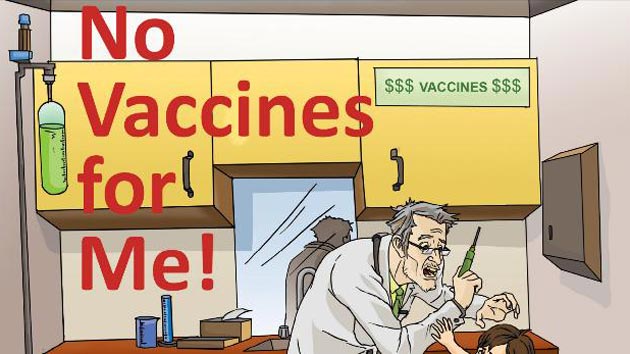Rep. Barry Loudermilk, a Georgia Republican who recently became the chair of a key congressional subcommittee on science and technology, didn’t vaccinate most of his children, he told a crowd at his first town hall meeting last week.
Loudermilk was responding to a woman who asked whether he’d be looking into (discredited) allegations that the Centers for Disease Control and Prevention (CDC) had covered up information linking vaccines to autism. He responded with a rather unscientific personal anecdote: “I believe it’s the parents’ decision whether to immunize or not…Most of our children, we didn’t immunize. They’re healthy.”
Loudermilk’s comment sparked sharp criticism, including from Rick Wilson, a prominent Republican strategist who called for the congressman’s resignation.
Having “healthy,” unvaccinated kids does not mean that they aren’t at risk, or that they won’t put others at risk later if they become infected. So far this year, there have been 154 cases of measles and three outbreaks; one outbreak sickened 86 people and landed 30 babies in home isolation. The disease spreads rapidly, afflicting not only those who lack immunization due to parental choice, but also those who haven’t been vaccinated because they are immunocompromised. Prior to the advent of the measles, mumps, and rubella (MMR) vaccine, measles was responsible for up to 500 deaths in the United States every year. Due to low vaccination rates, 2014 saw the most confirmed cases of measles since 2000, when the CDC had declared the illness all but eliminated in the United States.
If Loudermilk is unconcerned about the potential health effects of once-common diseases, he may want to note the economic repercussions. The 107 confirmed cases of measles during the 2011 outbreak cost taxpayers $5.3 million to contain. Rigorous scientific research—including the 2004 CDC study cited by Loudermilk’s constituent—has shown that theories about a supposed connection between vaccines and autism are unfounded.
The CDC study in question looked at children with and without autism to find out if there was any difference in their rates of MMR vaccination. The researchers found none. The so-called “cover-up” originated from a secretly recorded and cherry-picked conversation between William Thompson, a senior scientist at the CDC, and Brian Hooker of Focus for Health, an organization that seeks “to put an end to the needless harm of children by vaccination and other environmental factors.” In the conversation, Thompson allowed that among African American boys, in a small subset of children studied, the incidence of autism was higher for those who were vaccinated than those who were not. That statement landed in a wildly misleading video released on YouTube produced by Hooker and Andrew Wakefield, a British researcher whose medical license was revoked in 2010. A year later, a journal that published Wakefield’s paper linking autism and vaccines determined his findings were fraudulent.
We’ve reached out to Rep. Loudermilk for comment.
Watch the full press conference, via Georgiapolitics.org, here. (Vaccines enter the fray at 1:26:00.)













